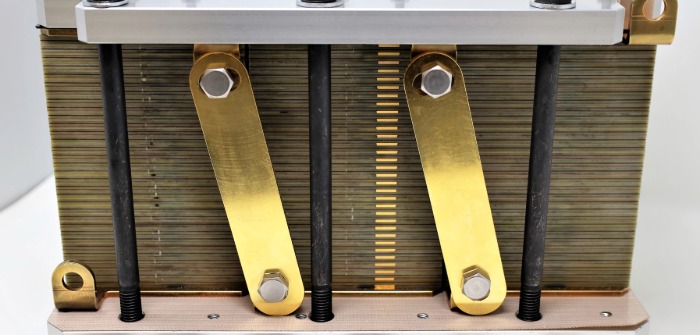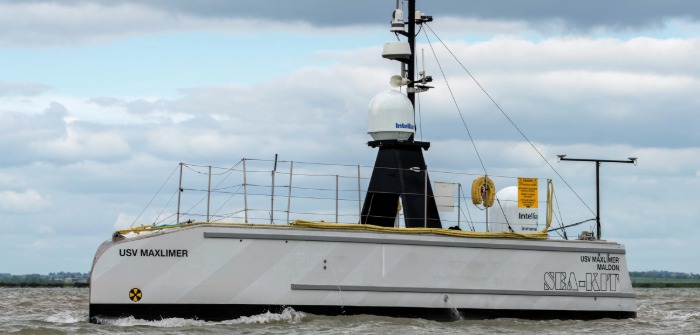Uncrewed surface vessel (USVs) designer and builder Sea-Kit International has won funding to install a PCB-based hydrogen fuel cell engineered by project partner Bramble on its 12m USV, the Maxlimer. The ship will be used to demonstrate zero-emission operations at sea.
The grant was awarded to Sea-Kit through the Clean Maritime Demonstration Competition (CMDC) Strand 2, and the project will be funded by the Department for Transport (DfT), working alongside Innovate UK. A diesel-to-hydrogen conversion of Sea-Kit’s USV design will be utilized to demonstrate how the UK’s Clean Maritime Plan Strategy can be achieved, by reducing greenhouse gas emissions from shipping by more than half by 2050.
“Sea-Kit USVs have a dual diesel-electric hybrid drive, with propulsion coming from an electric motor powered by battery banks that are charged by in-situ diesel generators,” commented Ben Simpson, CEO, Sea-Kit. “This project will replace one of the diesel generators with new hydrogen fuel cell technology from Bramble Energy and demonstrate an offshore operation with zero carbon emissions.”
Based in West Sussex in the UK, Bramble Energy will design and manufacture a marine version of the company’s printed circuit board fuel cell (PCBFC). PCBs are said to be a more durable alternative to metallic or graphite end plates, making them an ideal technology for use within the marine industry. An enclosure will sit over the PCBFC to protect the unit from sea water that could cause corrosion.
The hydrogen fuel system will be retrofitted to the USV for demonstration purposes and, following the evaluation of bench test and sea trial data, the information will subsequently be used to build vessels that utilize the same propulsion system.
“This project provides the perfect opportunity to demonstrate our decarbonizing technology in a real world, challenging environment across a new industry with an exciting commercial partner,” added Vidal Bharath, COO, Bramble Energy.
Through the project, both Sea-Kit and Bramble Energy aim to demonstrate that hydrogen fuel systems can be used as a viable form of propulsion for USVs.
“As the UK prepares to host COP26 in the maritime city of Glasgow, it is great that we can announce funding for these fantastic projects in the maritime sector that will help the UK meet its net zero goals,” explained Simon Edmonds, deputy executive chair and chief business officer, Innovate UK.
“From this competition we saw a very high level of demand, we have seen the very best of British ideas from all over the country. It is clear that not only does the UK have a great maritime history, but also a bright and greener future too.”




